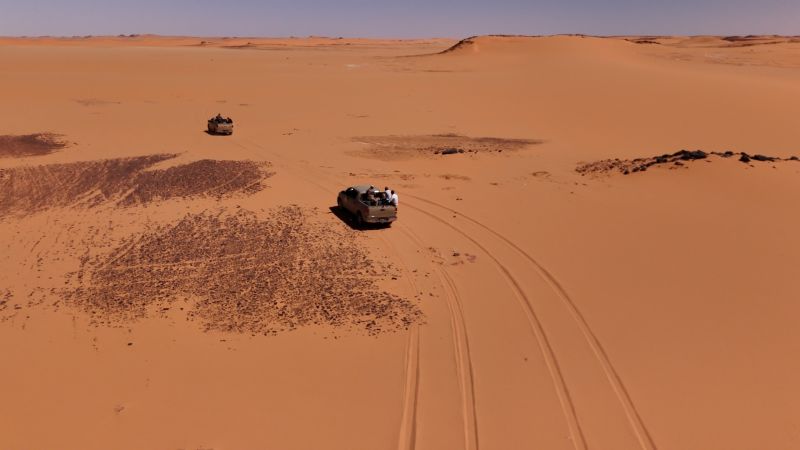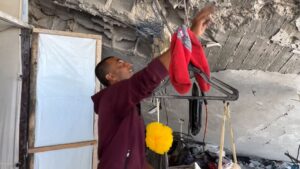
In a chilling investigation, families are being forced to pay ransoms to secure the release of loved ones abducted by traffickers in Libya’s Sahara Desert. Abeba, a resident of rural Germany, received a desperate audio message from her brother Daniel, who is currently being held captive in southern Libya. His captors demand a ransom of $10,000, and without the funds, his life hangs in the balance.
Libya has long been a key transit point for migrants aiming to cross the Mediterranean Sea in search of better opportunities in Europe. The ongoing civil conflict in Sudan has displaced millions, pushing many refugees to undertake the perilous journey through Libya. According to the United Nations, Eritreans make up a significant portion of those seeking refuge, fleeing from a regime often likened to a dictatorship.
Trafficking Networks Thrive in the Desert
The Sahara’s vastness allows traffickers to operate with little oversight. Col. Mohammad Hassan Rahil, a commander in the Libyan National Army, admits the challenges faced by security forces in combating these networks. “We are doing our best with the capabilities that we have,” he stated from his command post near the Sudanese border.
Traffickers often exploit the desperation of migrants, particularly those from countries with large, affluent diasporas willing to pay hefty ransoms. In many cases, the individuals who become victims of trafficking are subjected to severe abuse. Videos shared with CNN depict the horrific treatment of refugees like Daniel, who has been tortured and beaten while in captivity.
A Sudanese man detained by authorities revealed how he facilitated financial transactions between victims’ families and traffickers, using an informal money transfer system known as “hawala.” This network complicates efforts to track money flows, leaving victims vulnerable to ongoing exploitation.
Government Responses and International Complications
Despite the challenges, there have been instances where authorities successfully intervene. Three years ago, a group of men managed to escape from a trafficking compound in Tazirbu, leading to a police raid that freed dozens. Tsinat Tesfay, identified as a key figure in these trafficking operations, was later convicted and sentenced to life imprisonment. However, the lack of resources and coordination among law enforcement agencies continues to hinder effective action against trafficking operations.
The humanitarian crisis is exacerbated by Libya’s political instability. The country is divided between rival governments, complicating international cooperation and response efforts. The European Union previously funded Libyan forces to curb migrant crossings, which led to reduced numbers attempting the journey but also resulted in many being detained in dire conditions.
Human rights organizations have criticized the treatment of migrants in detention centers, alleging abuse and neglect. Reports indicate that many detainees, including women and children, face further trauma after being released from captivity. Abrihet, a 16-year-old Eritrean girl, described her harrowing experiences in detention, expressing a desire to escape her pain.
Libyan authorities, including Col. Mohammed Al-Fadhil of the Department for Combating Illegal Migration, acknowledge the need for increased international collaboration to address these trafficking networks. “The whole European Union, the countries impacted by illegal migration, should all be partners to eradicate the phenomenon,” he stated.
As the situation continues to deteriorate, families like Abeba’s face immense emotional and financial strain. After months of fundraising, she was able to pay the ransom for Daniel’s release. He is now in Tripoli, still far from being reunited with his family. Abeba’s anguish over her brother’s suffering and the loss of her family’s savings underscores the human cost of this ongoing crisis. “May God punish them for what they did,” she mournfully expressed. “How many mothers are crying blood and tears for their children and loved ones? I beg you, tell this story to the world.”







